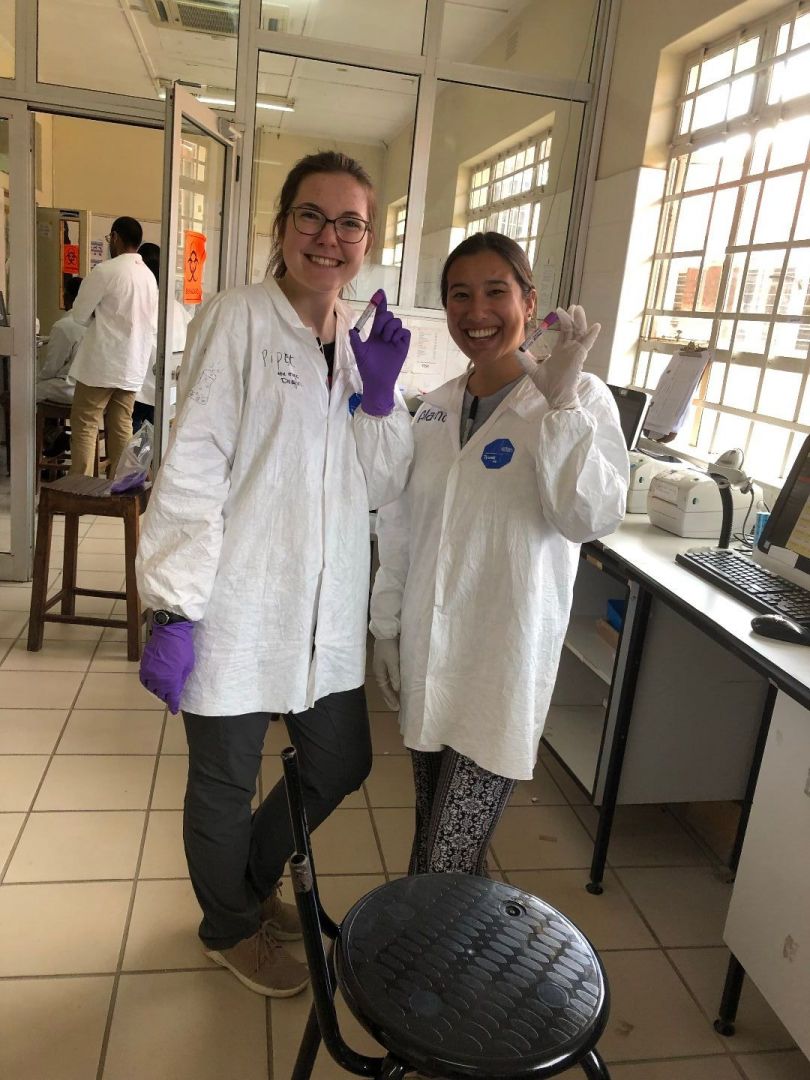No two days in Malawi were quite the same. We spent the first week exploring all the different levels of the healthcare system. These ranged from rural clinics where babies were weighed in outdoor scales, to a private modern hospital in Blantyre that looked like it could have come straight out of any large cosmopolitan city. This part of the study abroad experience impacted me the most, by reminding me how fortunate I am to have insurance coverage and easy access to quality care. We learned that although most healthcare is free for Malawians, they may have to walk over ten miles to the nearest clinic which may lack even the most basic 
For the remaining three weeks, we split our time between two labs and lectures. My group spent the first week working in a lab at the Malawi College of Medicine assisting with research to find a more efficient test for malaria. We spent the second week working in all the different sections of the clinical lab at Queen Elizabeth Central Hospital. In the afternoons we attended lectures about different African diseases from both MSU and Malawian faculty. Malawian students joined us for labs and lectures, and these students became our friends as the program progressed, and this helped us experience a more authentic Malawi. One of my favorite memories from the program was spending the day with Shakira, one of the Malawian students, as she took us to a traditional restaurant where we learned the proper way to eat nsima (a staple corn flour dish) with our hands, and how locals spend their time in Blantyre.
On the weekends, we always had an adventure, and those experiences were to the extremes; the beauty of seeing the Milky Way from a safari camp and seeing the waterfall early in the morning high up a mountain at Mulanje surpassed any expectations I could have had. It seems like a cliché, but truly nothing can compare to the vastness of the African sky in Malawi. In contrast, I also experienced some eye opening human experiences while here. After seeing children walk down mountain trails with firewood balanced on their heads, and realizing that the blood being returned to me at the blood bank was because a patient died during emergency surgery, have been extremely humbling experiences. This study abroad experience has made me realize how fortunate I am to live in the US, especially in terms of quality and access to healthcare. I will never have to slide down a mountain carrying trees to help support my family, I have the opportunity to move away and gain an education for myself. Malawi has made me so grateful for this opportunity to see this beautiful country and experience a new level of healthcare.
Name: Piper Brase
Status: Junior
Major: Microbiology
Hometown: Fairbanks, Alaska
Program: Malawi: Infectious Diseases of Africa